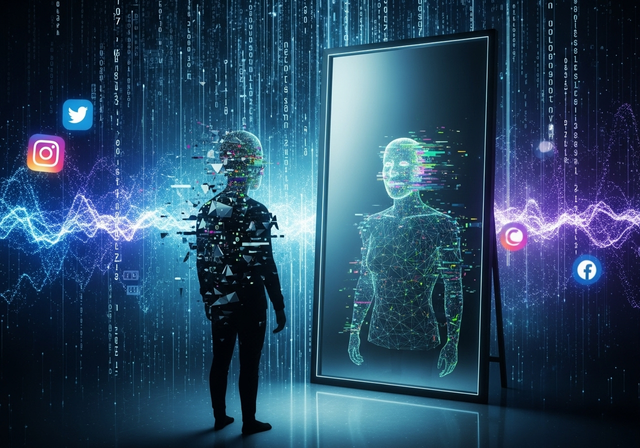Can the Internet Be a Space of Liberation — or Is It Just a Mirror of Reality?
Can the Internet Be a Space of Liberation — or Is It Just a Mirror of Reality?
The internet was once hailed as the great equalizer.
A borderless realm where knowledge is free, voices are amplified, and anyone — regardless of background, class, or geography — can speak, connect, and create. When the World Wide Web began reshaping our world in the late 1990s and early 2000s, tech visionaries spoke of digital utopias. We were promised that the web would democratize opportunity, flatten hierarchies, and empower the disempowered.
But as we stand in 2025, two decades into the “connected age,” a sobering question remains:
Is the internet truly a space of liberation?
Or has it merely become a reflection — even a distortion — of the inequalities, biases, and power structures of the real world?
This article aims to explore that paradox in depth. Because while the internet can offer freedom, it also increasingly reveals — and reproduces — the same systemic dynamics it once sought to disrupt.
The Internet as a Tool of Empowerment
There’s no denying the liberating potential of the web. It has:
- Democratized publishing: Anyone with a blog, YouTube channel, or Steemit profile can broadcast their voice to the world.
- Enabled social movements: From the Arab Spring to #MeToo and #BlackLivesMatter, online platforms have helped ignite real-world change.
- Created economic opportunities: Freelancing, remote work, e-commerce, and crypto have redefined how people earn, often bypassing traditional gatekeepers.
- Offered educational access: Free courses, online universities, and open-source knowledge have made learning more accessible than ever.
The very fact that you’re reading this article right now — without a publisher, paywall, or national boundary blocking it — proves that digital freedom is real.
Yet alongside that freedom, another force operates — one more subtle and insidious.
The Internet as a Mirror of Societal Reality
What if the internet didn’t change the system — it just digitized it?
Consider the following:
Social Media and Algorithmic Bias
Platforms like Instagram, YouTube, and TikTok appear meritocratic on the surface: the best content wins. But algorithms are trained on patterns — and patterns reflect biases.
- Black creators have reported being suppressed or demonetized more frequently.
- Women face disproportionate harassment, objectification, and silencing.
- Political voices that don’t align with mainstream narratives often get flagged, shadowbanned, or de-platformed.
These aren’t bugs in the system. They are digital extensions of existing social prejudices, amplified by machine learning trained on historical bias.
Economic Inequality Online
Yes, the internet offers income opportunities — but not everyone starts from the same point.
A young person in New York with access to fiber internet, tech-savvy mentors, and a brand-new MacBook doesn’t compete on equal terms with a rural student in Ghana sharing a cracked Android device on unstable 3G.
Even online, capital, education, and geography still dictate how much freedom one can access.
Moreover, the platforms that offer “free” access — like Facebook or Google — often monetize user attention through ads, turning users into the product, not the customer.
Surveillance and Digital Policing
In authoritarian regimes, the internet has become a tool for surveillance.
- Protesters are tracked via facial recognition.
- WhatsApp messages are decrypted and used as legal evidence.
- VPNs and encrypted apps are outlawed in many countries.
Even in democratic nations, mass data collection through cookies, apps, and wearable tech raises concerns about how much freedom we really have online.
When our clicks, purchases, and searches are constantly tracked, is that true liberation — or just a new digital cage?
Identity, Expression, and the Illusion of Freedom
The internet allows people to express identities they may suppress offline — gender-fluid individuals, political dissidents, neurodivergent creators. In this way, it can indeed feel liberating.
But at what cost?
On platforms saturated with performance metrics — likes, views, followers — identity itself becomes a commodity. People often feel pressured to:
- Curate their image
- Fit into niche communities
- Chase trends over truth
- Monetize their trauma
Thus, the freedom to “be yourself” can morph into a pressure to perform yourself.
Liberation becomes another algorithm to master.
So, Can the Internet Be Truly Liberating?
Yes — but only if we build it that way.
The internet is not inherently liberating or oppressive. Like any technology, it reflects the values and structures of those who design, fund, and control it.
The question then becomes:
Who owns the digital public square? And who has a say in how it works?
To reclaim the internet as a space of liberation, we need:
1. Digital Literacy for All
Not just how to use apps — but how algorithms work, how data is used, how to spot manipulation. Education is key to empowerment.
2. Decentralized Platforms
Blockchain-based alternatives (like Steemit!) that are resistant to censorship, profit-sharing, and data exploitation are vital counterpoints to Big Tech monopolies.
3. Stronger Privacy Rights
Users should control their own data. Full stop. Platforms should offer transparent privacy tools and honor digital consent.
4. Global Accessibility
Liberation means nothing if it’s only for the privileged. Expanding access to under-connected regions is an urgent social justice issue.
5. Accountability in Tech Design
We must push for ethical tech: inclusive datasets, bias audits, diverse development teams, and transparent algorithms.
The internet won’t liberate us on its own. It reflects who we are — and what we build.
As users, creators, writers, and thinkers, we have the power to shape our digital spaces into places of:
- Truth, not clickbait
- Connection, not division
- Expression, not exploitation
- Community, not competition
The tools are in our hands. But we must wield them consciously.
So the next time you post, create, share, or engage, ask yourself:
**Am I contributing to liberation — or just feeding the reflection of a broken world?
